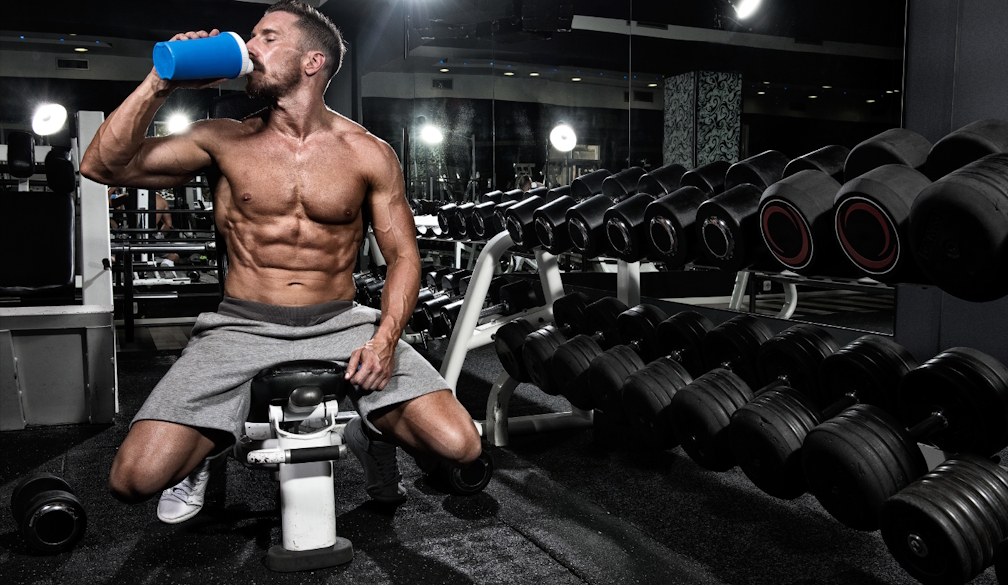What Are High Protein Drinks?
- Written by Men's Weekly

In today's health-conscious world, protein drinks have surged in popularity, catering to a diverse range of needs from fitness enthusiasts to individuals seeking convenient nutritional supplements. But what exactly are high protein drinks? This article aims to demystify these beverages, exploring their composition, benefits, types, and how to incorporate them into your diet effectively.
Understanding Protein and Its Importance
Before diving into the specifics of protein drinks, it’s crucial to understand why protein is essential. "Protein is a macronutrient composed of amino acids, which are the building blocks of our bodies. It plays a vital role in various bodily functions, including":
Muscle Growth and Repair: Protein is essential for building and repairing muscle tissue, particularly after exercise.
Enzyme and Hormone Production: Many enzymes and hormones are proteins, crucial for regulating various bodily processes.
Immune Function: Antibodies, which help fight off infections, are proteins.
Tissue Repair and Maintenance: Protein supports the repair and maintenance of all tissues in the body.
Satiety: Protein helps you feel full and satisfied, aiding in weight management.
Given these vital roles, ensuring adequate protein intake is crucial. High protein drinks offer a convenient way to supplement dietary protein, especially for those with increased protein needs or busy lifestyles.
What Constitutes a High Protein Drink?
A high protein drink is a beverage formulated to provide a significant amount of protein per serving. The definition of "high protein" can vary, but generally, a drink containing 20-30 grams of protein per serving is considered substantial. These drinks are designed to supplement regular dietary protein intake, not necessarily replace whole food protein sources.
Types of High Protein Drinks
High protein drinks come in various forms, each with its unique characteristics and protein sources:
Protein Shakes: These are typically made by mixing protein powder with liquid, such as water, milk, or plant-based alternatives. They are the most common type of high protein drink and can be customized with other ingredients like fruits, vegetables, and nut butter.
Ready-to-Drink (RTD) Protein Beverages: These pre-made drinks are convenient and readily available. They come in various flavors and often include added vitamins and minerals.
Protein Smoothies: These are similar to shakes but often include a blend of fruits, vegetables, and other ingredients for added nutrients and flavor. They can be homemade or purchased pre-made.
Fortified Drinks: Some juices, milk alternatives, or even waters are fortified with protein to increase their nutritional value.
Protein Sources in High Protein Drinks
The protein in these drinks comes from various sources, each with its own benefits and characteristics:
Whey Protein: Derived from milk, whey protein is a complete protein and is quickly absorbed by the body, making it ideal for post-workout recovery. It comes in different forms: concentrate, isolate, and hydrolysate.
Casein Protein: Also derived from milk, casein protein digests more slowly, providing a sustained release of amino acids, which is beneficial for overnight recovery.
Soy Protein: A plant-based protein derived from soybeans, soy protein is a complete protein and a good option for vegetarians and vegans.
Pea Protein: Made from yellow peas, pea protein is another plant-based option that is easily digestible and hypoallergenic.
Hemp Protein: Derived from hemp seeds, hemp protein is a complete protein and also contains beneficial fatty acids and fiber.
Rice Protein: Made from brown rice, rice protein is hypoallergenic and gluten-free, although it's not a complete protein on its own.
Mixed Plant Proteins: Some drinks combine various plant-based proteins to ensure a complete amino acid profile.
Benefits of High Protein Drinks
High protein drinks offer several benefits, making them a valuable addition to many diets:
Muscle Growth and Repair: Providing essential amino acids, protein drinks support muscle development and recovery, especially after exercise.
Convenient Nutrition: They offer a quick and easy way to increase protein intake, particularly for those with busy schedules.
Weight Management: Protein promotes satiety, helping to control hunger and manage weight.
Nutrient Boost: Many protein drinks are fortified with additional vitamins, minerals, and probiotics, enhancing their nutritional value.
Dietary Support: They are beneficial for individuals with increased protein needs, such as athletes, older adults, or those recovering from illness.
Incorporating High Protein Drinks Into Your Diet
To maximize the benefits of high protein drinks, consider these tips:
Post-Workout Recovery: Consume a protein drink shortly after exercise to support muscle repair and growth.
Meal Replacement: Use protein drinks as a meal replacement when needed, but ensure they provide adequate nutrients and not solely rely on them.
Snack Option: Have a protein drink between meals to control hunger and maintain energy levels.
Blend with Healthy Ingredients: Add fruits, vegetables, nut butter, or other healthy ingredients to protein shakes or smoothies for added nutrients and flavor.
Follow Serving Sizes: Adhere to recommended serving sizes to avoid excessive calorie intake.
Balance Macronutrients: Ensure your overall diet is balanced with carbohydrates and healthy fats.
Consult a Professional: If you have specific dietary needs or health concerns, consult a healthcare professional or nutritionist before regularly incorporating protein drinks.
Potential Myths and Considerations
Myth: Protein Drinks Are Only for Bodybuilders: Protein drinks are beneficial for anyone looking to increase protein intake, including older adults and those with dietary restrictions.
Myth: Protein Drinks Replace Whole Foods: While they can supplement meals, they are best combined with whole foods for balanced nutrition.
Consideration: Excess Protein: Excessive protein intake may strain the kidneys, but moderate consumption is generally safe and beneficial.
Consideration: Allergens and Additives: Be mindful of potential allergens (like dairy or soy) and artificial additives in protein drinks.
Conclusion
High protein drinks are a convenient and effective way to supplement protein intake, support muscle growth and repair, manage weight, and enhance overall nutrition. With various types and protein sources available, you can choose the best option to meet your individual needs and fitness goals. However, it’s essential to balance protein drinks with a healthy, varied diet and consult with a healthcare professional if you have any concerns. By incorporating protein drinks wisely, you can maximize their benefits and achieve your health and wellness objectives.






